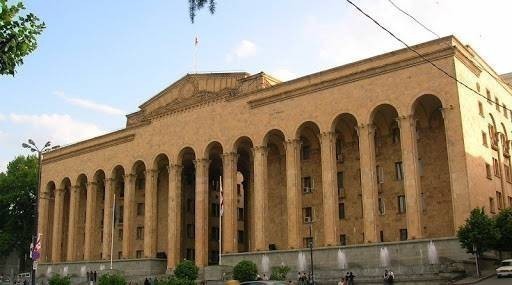საერთო ცხელი ხაზი +995 577 07 05 63


Human Rights Education and Monitoring Center (EMC) welcomes the adoption of the Law on Amnesty by the Parliament on January 11, this year[1] and shares the view that humane act in the current situation is important and much needed. At the same time, EMC finds the insufficient conditions for the involvement of civil society organizations and stakeholders, in the bill review process, problematic and calls on both the legislative and executive branches to offer adequate employment and socio-economic support programs to amnesty recipients to ensure their full resocialization.
The amnesty bill was introduced in the parliament on December 25, last year[2] and the discussion on the document was held in an expediated manner. Initially, involvement of civil society organizations, professional unions and other stakeholders was ensured in the working process. However, during the second reading of the bill, at the committee discussion stage, it was still unclear what specific content the law would have. At the third reading of the bill, at committee hearing, civil society organizations and stakeholders were not allowed to participate in the discussions at all. This is a sad precedent in terms of legislative activity, especially against the background that only the ruling political party participated in the parliamentary debates on the bill.
As for the content of the amnesty, it should be noted, first of all, that neither the explanatory note to the bill nor the public statements by the representatives of the ruling political team made it clear where the need to adopt the new law originated from.[3] Only the principle of humanism and the improvement of the legal status of convicted persons were mentioned to explain the need for the amnesty law, although it is unclear why these issues were put on the agenda after the election period.
The fact that the scope of the amnesty has been significantly expanded, compared to the initiated edition, and has largely included property related, economic and other activities that do not show signs of recidivism, organized crime, domestic violence or official misconduct, should be positively assessed. One of the main issues covered by the amnesty legislation was drug related offenses, and the enacted law covers, in various ways, the actions related to drug use and its purchase-storage for personal use. Unfortunately, in the context of repressive drug policy, amnesty law, alone, cannot be considered as a sufficient mechanism to fully balance the existing harsh and unfair approaches, and the need for systemic drug policy reform remains on the agenda.
The amnesty law reveals a special, humane approach in relation to acts committed by women that concern property, economic activities and drugs and do not belong to a particularly serious category of crimes.[4] One of the preconditions for female prisoners to have their remaining prison sentence commuted to non-custodial sentence is to have a child who is a minor. Recognition and consideration of the interests of children are important social factors in the amnesty process and this is commendable, although in this case it is unclear what constitutes the basis for the differentiation of convicted persons. Given the importance of the principle of equal distribution of roles between women and men in the practice of caring for the interests of children and the domestic setting, it would only be correct that those granted amnesty, in this regard, were male AND female convicted persons, on equal basis.
In addition to female convicted persons, the prison sentence imposed for the above-mentioned crime shall be commuted to house arrest for those convicted persons who, in parallel with serving their sentences, have obtained student status in accordance with the Law of Georgia on Higher Education. In this case, too, one of the preconditions for the provision of a humane approach is the non-suspension of the status of a student. This precondition can also become a source of injustice given that a convicted student may have their student status suspended due to objective circumstances. Imposition of such a formal criterion makes this benefit largely illusory.
With regard to amnesty, an important challenge will be to support persons leaving penitentiary institutions and to offer them employment, social and health services. State policies and approaches to the re-socialization of persons in the criminal justice system are essentially in need of strengthening and diversification. In the current difficult socio-economic context, exacerbated by the global pandemic, the need for support, in various forms, for people currently or formerly incarcerated is becoming even more acute. Against this background, the joint work of various structures of both the legislature and the executive branches should ensure that persons granted amnesty are provided with conditions for their dignified return to society so that their full re-socialization and rehabilitation is not jeopardized.
[1] The Law of Georgia on Amnesty, available at: https://matsne.gov.ge/ka/document/view/5080134?publication=0 (accessed on: 11.01.2021).
[2] See initial version of the bill:https://matsne.gov.ge/ka/document/view/5080134?publication=0 (accessed on: 11.01.2021).
[3] See explanatory note to the bill:https://info.parliament.ge/file/1/BillReviewContent/266349? (accessed on: 11.01.2021).
[4] Crimes under Chapter XXV of the Criminal Code (crime against property), Chapter XXVI (crime against entrepreneurial or other economic activity), Chapter XXVII (crime in the monetary-credit system), Chapter XXVIII (crime in the field of financial activity) or Chapter XXXIII (drug crime) (except in the case when the accused / convicted person has committed a crime involving the illegal sale of a drug, its analogue, precursor or new psychoactive substance and / or psychotropic substance, its analogue or potent substance (Article 8 of the Amnesty Law).
The website accessibility instruction